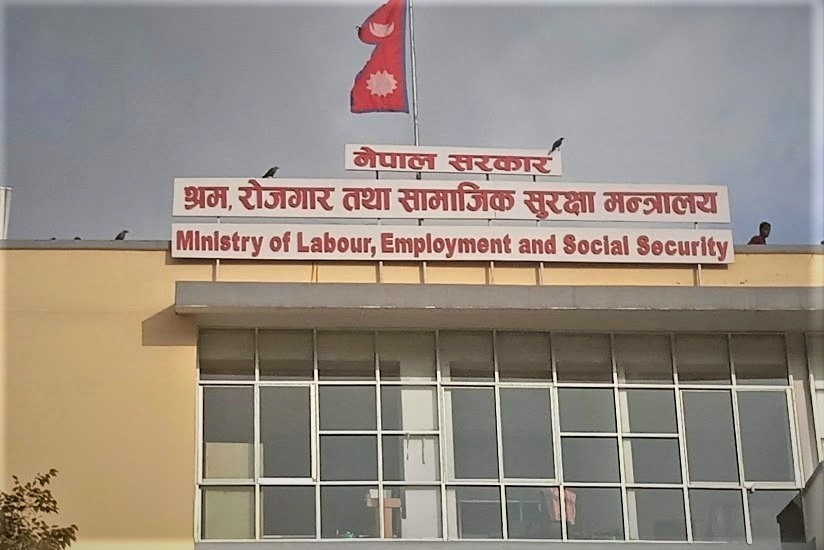Kathmandu: In response to a rising trend of individuals traveling abroad on visitor and tourist visas for foreign employment, the Nepalese government has launched a new study aimed at addressing this issue. The initiative is led by the Ministry of Labor, Employment, and Social Security, under the guidance of a committee headed by the Deputy Secretary of the Employment Management Division.
The committee, originally formed under former Deputy Secretary Govind Prasad Rizal, is now continuing its work despite his transfer. The Ministry has stated that the newly appointed Deputy Secretary will carry on with the study.
According to Labor Minister Sharatsingh Bhandari, the committee was formed to develop strategies to manage the illegal outflow of workers on visitor visas, which has led to numerous cases of fraud and exploitation. A significant number of workers traveling to the United Arab Emirates (UAE) on visitor visas have faced such challenges, with similar issues reported in Kuwait and Bahrain.
The government aims to implement stricter regulations to prevent workers from leaving on visitor visas, amid growing pressure to avoid imposing overly harsh measures that could infringe on workers’ rights. Human rights advocates have highlighted the need for the government to avoid creating conditions that would lead to violations when imposing rules on foreign employment.
Under current laws, individuals must obtain a labor permit, pay a fee to the Foreign Employment Welfare Fund, and secure periodic life insurance before traveling abroad for employment. If workers encounter issues after following these procedures, the responsibility lies with the recruiting agencies and employers.
Reports indicate that unscrupulous agents are charging up to 400,000 NPR to lure individuals with promises of lucrative jobs on visitor visas. Those who attempt to find work under these circumstances often find themselves in vulnerable positions with little recourse for assistance.
The issue of human trafficking under the guise of visitor visas is particularly alarming, with many young people falling prey to traffickers due to limited job opportunities at home. Some travel agencies are actively advertising visitor visas on social media, exacerbating the problem.
While the government issued a new directive on January 10, 2023, to tighten controls on the issuance of visitor visas, reports suggest that human traffickers continue to exploit gaps in the system, leading to an increase in the number of workers traveling on visitor visas.
To mitigate these risks, the Immigration Department has established new regulations requiring a minimum of six months validity on passports for those applying for visitor visas, along with proof of hotel bookings or ties to relatives in the host country. Additionally, applicants must provide evidence of financial stability, such as a bank statement or invitation letter from a reputable organization.
The newly formed committee will explore potential changes to these regulations and plans to engage with stakeholders for further discussions on how to effectively curb the unauthorized migration of workers under visitor visas.
